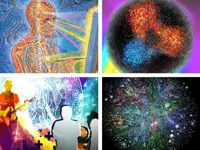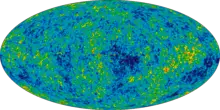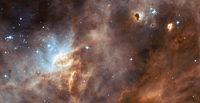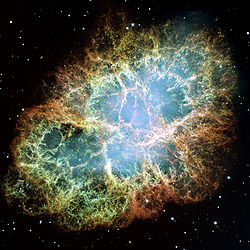|
TRANSLATE THIS ARTICLE
Integral World: Exploring Theories of Everything
An independent forum for a critical discussion of the integral philosophy of Ken Wilber
  Frank Visser, graduated as a psychologist of culture and religion, founded IntegralWorld in 1997. He worked as production manager for various publishing houses and as service manager for various internet companies and lives in Amsterdam. Books: Ken Wilber: Thought as Passion (SUNY, 2003), and The Corona Conspiracy: Combatting Disinformation about the Coronavirus (Kindle, 2020). Frank Visser, graduated as a psychologist of culture and religion, founded IntegralWorld in 1997. He worked as production manager for various publishing houses and as service manager for various internet companies and lives in Amsterdam. Books: Ken Wilber: Thought as Passion (SUNY, 2003), and The Corona Conspiracy: Combatting Disinformation about the Coronavirus (Kindle, 2020). SEE MORE ESSAYS WRITTEN BY FRANK VISSER Heavy ElementsWhy Integral Physics is Lost in SpaceFrank Visser
For Ken Wilber, creativity is something that needs no further explanation, it is a fundamental principle of existence.
In a recent members-only "Kosmic Creativity" audio on IntegralLife.com, Ken Wilber, Andrew Cohen and Marc Gafni discuss the essential contours of an "Evolutionary Spirituality" that will be the topic of the 3rd Integral Spiritual Experience seminar later this year. It takes creativity to be a central aspect of a new and emerging worldview, for which creativity equals "Spirit" equals "God". Where Cohen and Gafni represent the guru spirituality and the literary approach, Wilber's contribution is decidedly more scientific, at least in tone and vocabulary. The audio makes for no easy listening. Most striking is that the three guys each are allotted some twenty minutes of air time, and use this up to the fullest by using a feverish stream of words and jargon, each from their own specialism and field of expertise. "Creative Advance into Novelty"
Wilber's view of evolution has been discussed many times on this website (see "The Wilberian Evolution Report"). He sees the whole process of evolution as guided by a spiritual force called Eros. He frequently uses the Whiteheadian phrase that evolution essentially displays a "creative advance into novelty". New about this "evolutionary spirituality" is that human creativity is connected to the creativity which is supposedly at work in evolution and has been so even during the formation of the material cosmos. For Ken Wilber, creativity is something that needs no further explanation, it is a fundamental principle of existence. As one example, Wilber mentions the fact that the Big Bang started off with very simple particles and atoms such as Hydrogen, but later on more complex and heavier elements were formed. Apparently Wilber seems to think this slow emergence of the Periodical System of the elements is the result of a spiritual Force behind the Cosmos: "Creativity is a characteristic of Spirit, all the way back to the Big Bang." The view itself is inspiring: creativity and spirituality are built into the fabric of existence, and the more creative we become, the more spiritual we will be. As usual, this is not the quarrel I have with Wilber. It's when he's illustrating his case with examples from the field of science my nagging doubts start to reappear again. Listen to this fragment for example (and please bear in mind that I have tried to keep of with the frantic pace of the audio, so I may have missed a few words):
Whether we see this in a spiritual way or in a more material way, the fact is there is creative emergence. There is evolution. Going all the way back to the earliest particles or strings or whatever physics is suggesting... at some point, these quarks, following their own strict causality, at some point, nonetheless, a boundary dropped around these particles and this produced protons. And another group of quarks came together and another boundary dropped around those and this produced neutrons. And another group of quarks came together and a boundary dropped around them and this produced electrons. And for a very long time, these individual particles went their own independent way.
For Wilber, this is true even for materialistic science, if it would be able to ascribe a "creative tendency" to matter. But he prefers to see this in a more spiritualist context, which poses no problem for, as he optimistically adds, we can prove Spirit to exist, using his famous "three strands of knowledge" (I leave that aside for now). The "argument" is similar to the one discussed and criticized by David Lane in his "Frisky Dirt" essay. Again, Wilber brings this strange mixture of sophisticated Whiteheadian jargon — moments prehending other moments, becoming subjects or object, introducing novelty etc. — and a fairy tale, Kindergarten kind of scientific story — boundaries are dropped around particles and atoms, to produce complexity —, to offer a scientific "foundation" for his particular take on spirituality. Inspiring? Certainly. Convincing? Well, only if you know really nothing about how science actually views these things. Which happened to be true in my case, so let's start from this position of ignorance, and try to find out. Just how, exactly, have the heavier elements Wilber mentions (and many, many more) been formed? Is science in the dark about this question, and would it be helped in any way by the introduction of a spiritual "advance into novelty"? GENESIS OF THE ELEMENTSFrom the YouTube video "Astronomical Alchemy: the Origin of the Elements", a one hour talk by Dr. Philip A. Pinto, Associate Professor, Astronomy/Steward Observatory, — and I am paraphrasing here:
The universe started with the Big Bang, and started to expand, and cool down. There was yet nothing to see. This is still the Dark Ages of the cosmos.
Within stars, the pressure inside balances the gravity at work into a state of equilibrium. By shining, stars lose energy, they start to contract, which increases the pressure. Particles in the gas are moving faster, creating heat. Which again make the stars shine brighter.
After this explosion, it looks like the Crab Nebula. AfterthoughtWhy is it that, compared to this scientific presentation, Wilber's version looks so... uninteresting? So uninformative?
A scientific presentation like this leaves me breathless and speechless — why is it that, at no point in this discourse is there any need to turn to Whitehead, Eros, transcendental forces, "creative advances into novelty" as metaphysical principles? Why is it that, compared to this scientific presentation, Wilber's version looks so... uninteresting? So uninformative? Like, "How have the heavier elements been made?", "Oh, that's because there's a creative advance into novelty, you know. It's Eros." "Ah, I see." Has Wilber never heard of nuclear fusion and Supernova's? I really wonder if anyone within the integral scene is really interested in what science has to say about all this. What worries me is the total lack of interest in what science has to offer, be it physics or evolutionary theory. As long as science can be fitted into the preconceived notions of an "evolutionary" integral belief system, everybody feels good. It is fine to promote creativity and individual freedom, but please leave cosmic creativity or cosmic evolution out of it.
|



